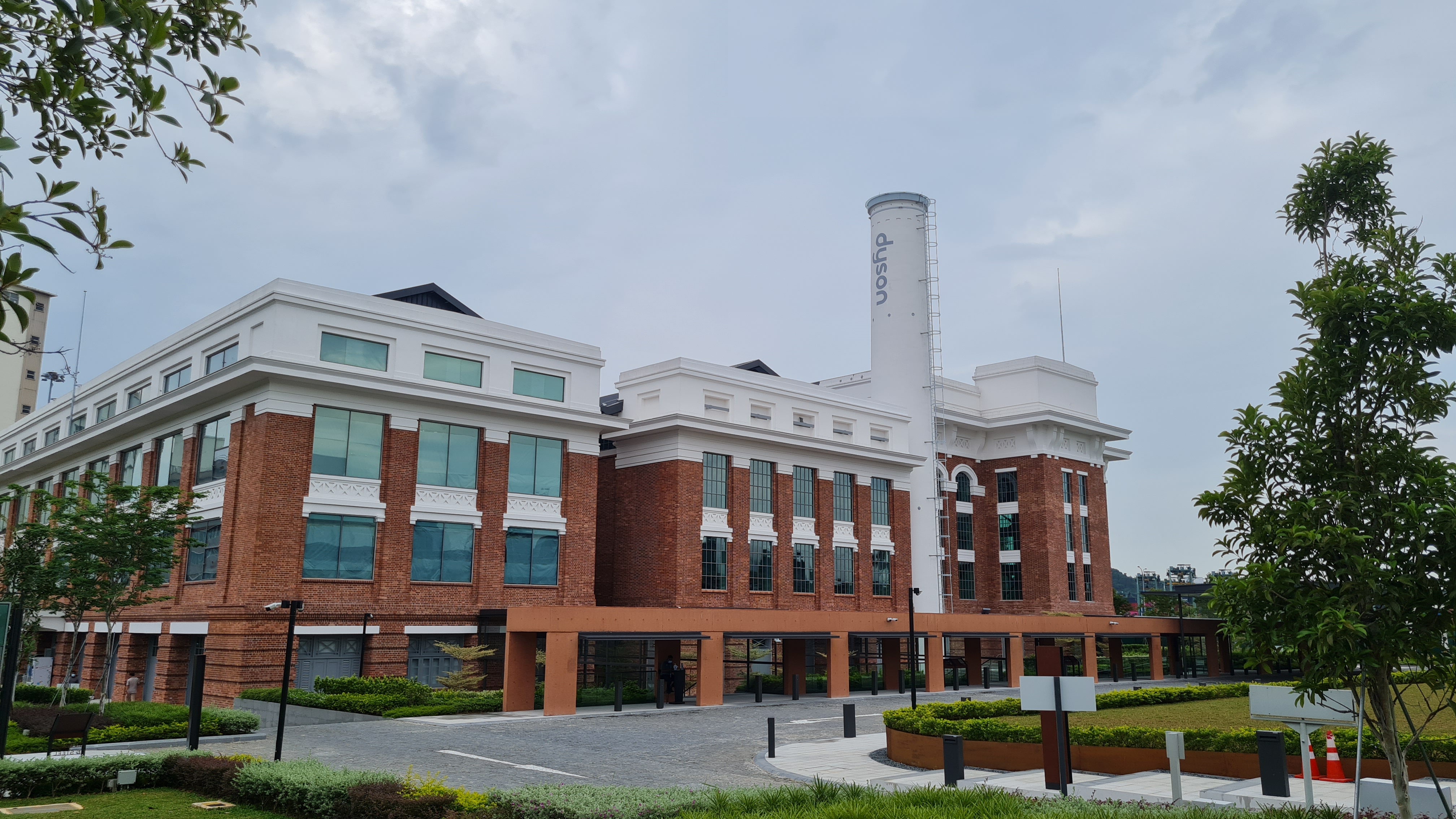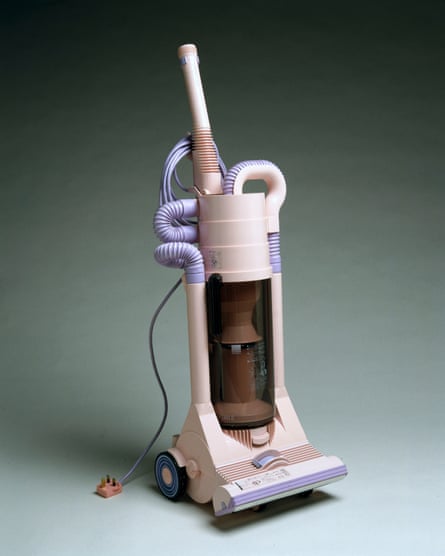Dyson vacuum cleaners are primarily made in Malaysia and the Philippines. Some models are also manufactured in the UK.
Dyson has revolutionized the vacuum cleaner market with its innovative technology and sleek designs. Founded by James Dyson in 1993, the brand quickly gained a reputation for high-performance products. Dyson vacuums feature bagless designs, powerful suction, and advanced filtration systems.
These characteristics set them apart from traditional vacuum cleaners. The company’s commitment to research and development ensures that each model incorporates the latest advancements in cleaning technology. Customers appreciate the durability and efficiency of Dyson vacuums, making them a popular choice for households. Understanding where these products are made can enhance your appreciation for their craftsmanship and performance.
Credit: www.lb.dyson.com
Page Contents
- 1 Introduction To Dyson’s Global Presence
- 2 The Origins Of Dyson Vacuum Cleaners
- 3 Dyson’s Manufacturing Shift
- 4 Current Production Hubs For Dyson
- 5 The Role Of Robotics And Automation
- 6 Quality Control In Different Regions
- 7 Economic And Political Factors In Manufacturing
- 8 Future Of Dyson’s Production
- 9 Environmental Considerations And Sustainability
- 10 Consumer Insights And Perceptions
- 11 Frequently Asked Questions
- 12 Conclusion
Introduction To Dyson’s Global Presence
Dyson has a strong global presence. The brand sells products in many countries. Dyson vacuum cleaners are known for their quality and innovation.
Manufacturing locations include the UK, Malaysia, and the Philippines. The UK factory is famous for producing premium models.
In Malaysia, production focuses on efficiency and volume. This helps meet global demand quickly.
Dyson’s commitment to quality ensures that every vacuum is well-made. Their unique designs stand out in the market.
| Location | Focus |
|---|---|
| UK | Premium models |
| Malaysia | Efficiency and volume |
| Philippines | Assembling various models |

Credit: en.wikipedia.org
The Origins Of Dyson Vacuum Cleaners
James Dyson, a brilliant inventor, dreamed of creating better home appliances. His vision led to the birth of Dyson Vacuum Cleaners. These vacuums are known for their powerful suction and innovative design.
Dyson founded his company in the late 20th century. His focus was on technology and efficiency. This commitment changed how people clean their homes. The first bagless vacuum cleaner was a game changer.
Today, Dyson is a tech giant. It produces various products, including fans and hair dryers. The brand is synonymous with quality and innovation.
Dyson’s Manufacturing Shift
Dyson has moved its vacuum cleaner production from Britain to Asia. This shift aims to reduce costs and improve efficiency. Manufacturing in Asia allows better access to suppliers and materials. Dyson can produce more units at a faster rate in these locations.
Strategic reasons include lower labor costs and advanced technology in factories. The company can invest in innovation while maintaining quality. Producing in Asia helps Dyson meet growing global demand for its products.
| Reason | Description |
|---|---|
| Cost Efficiency | Lower labor and production costs in Asia. |
| Supplier Access | Easier access to materials and technology. |
| Faster Production | Quicker manufacturing to meet demand. |

Credit: spotlessvacuum.co.uk
Current Production Hubs For Dyson
Dyson vacuum cleaners are produced in several key locations. Malaysia plays a vital role in this process. The country has modern factories that create many Dyson products. Skilled workers help maintain high quality standards.
Another significant hub is Singapore. This nation is known for its advanced manufacturing techniques. Dyson benefits from Singapore’s cutting-edge technology and efficient production methods. The combination of these locations ensures a steady supply of vacuum cleaners.
The Role Of Robotics And Automation
Robotics and automation play a huge role in Dyson’s vacuum cleaner production. Precision engineering ensures every part fits perfectly. This technology allows for faster assembly and higher quality products.
Using robots reduces human error. Machines can work tirelessly, boosting overall production efficiency. The result is a consistent and reliable product for consumers.
Dyson’s focus on innovation keeps it ahead in the market. Their advanced systems improve not only speed but also safety in the workplace. This commitment leads to better products for customers.
Quality Control In Different Regions
Dyson vacuum cleaners are known for their high quality. They are made in several countries, including the UK, Malaysia, and the Philippines. Each location has its own quality control measures. This helps maintain consistent standards across all products.
The quality assurance process includes several key steps. First, raw materials are carefully inspected. Next, assembly lines follow strict guidelines. Finally, finished products undergo rigorous testing. This ensures that every vacuum meets Dyson’s high expectations.
Every region has trained staff to oversee the process. Their goal is to deliver top-notch vacuum cleaners. Customers can trust that their Dyson product is made with care and precision.
Economic And Political Factors In Manufacturing
Cost considerations play a big role in where Dyson vacuum cleaners are made. Manufacturing costs affect pricing and profit margins. Companies seek locations with lower labor costs and raw materials. This helps keep prices competitive for consumers.
Trade agreements can significantly impact production decisions. These agreements often reduce tariffs and import taxes. When tariffs are low, companies save money. This can lead to more jobs in the manufacturing sector. Countries with strong trade ties attract businesses looking to cut costs.
| Factor | Impact |
|---|---|
| Manufacturing Costs | Lower prices for consumers |
| Labor Costs | Better profit margins |
| Trade Agreements | Reduced tariffs |
Future Of Dyson’s Production
Dyson focuses on innovative manufacturing methods. These methods improve efficiency and quality. New technology plays a big role in production. Robots help in assembly lines. This speeds up the process and reduces errors.
Dyson plans to expand production in the coming years. New factories are being built in various locations. This will help meet growing demand for their products. Predictions show that Dyson will continue to lead in vacuum technology.
| Aspect | Details |
|---|---|
| Innovations | Use of robots and AI in production |
| Expansion | New factories in multiple regions |
| Future Predictions | Increased market share in vacuum technology |
Environmental Considerations And Sustainability
Dyson focuses on eco-friendly manufacturing practices. The company uses renewable energy in its factories. This helps reduce carbon emissions significantly.
Materials used in production are often recycled or sustainable. This ensures that less waste ends up in landfills. Dyson also designs products for longevity and repairability.
By prioritizing sustainability, Dyson aims to create a positive impact on the planet. Their commitment to the environment is evident in every step of production.
Consumer Insights And Perceptions
Many consumers feel strong brand loyalty towards Dyson. They trust the quality and innovation of Dyson products. The production origin greatly influences buyer decisions. Some prefer products made in the UK, while others accept manufacturing in Asia.
Market trends show a growing interest in eco-friendly practices. Consumers want to know where their products come from. This affects their perception of brand value. Understanding production locations helps brands connect with customers.
| Market Trend | Consumer Reaction |
|---|---|
| Eco-friendly manufacturing | Increased brand loyalty |
| Local production | Higher willingness to buy |
| Transparency in sourcing | Improved trust |
Frequently Asked Questions
Where Are Dyson Vacuum Cleaners Manufactured?
Dyson vacuum cleaners are primarily manufactured in Malaysia and the Philippines. The company has a significant production facility in Malaysia, which focuses on assembling various models. Additionally, Dyson has research and development operations in the UK, which influences the design and technology of its products.
Are Dyson Vacuum Cleaners Made In China?
No, Dyson vacuum cleaners are not made in China. The brand has shifted its production from China to other countries like Malaysia. This change aims to improve quality control and enhance manufacturing efficiency while maintaining high standards in its products.
What Materials Are Used In Dyson Vacuum Cleaners?
Dyson vacuum cleaners are made from high-quality materials, including ABS plastic and polycarbonate. These materials ensure durability and lightweight functionality. Additionally, the use of advanced engineering techniques enhances performance and longevity, making Dyson vacuums reliable for everyday cleaning tasks.
Why Choose A Dyson Vacuum Cleaner?
Choosing a Dyson vacuum cleaner offers several benefits. They are known for powerful suction and advanced filtration systems. Their innovative designs make them easy to maneuver and maintain. Plus, Dyson vacuums come with a variety of attachments, catering to different cleaning needs and surfaces.
Conclusion
Dyson vacuum cleaners are crafted with precision and innovation. The company manufactures in multiple locations, primarily in the UK and Malaysia. Understanding where they are made helps consumers appreciate the quality and engineering behind each model. Choose Dyson for reliable performance and cutting-edge technology in home cleaning solutions.

